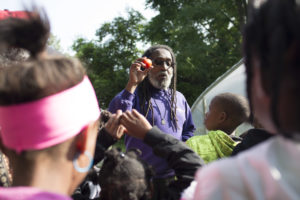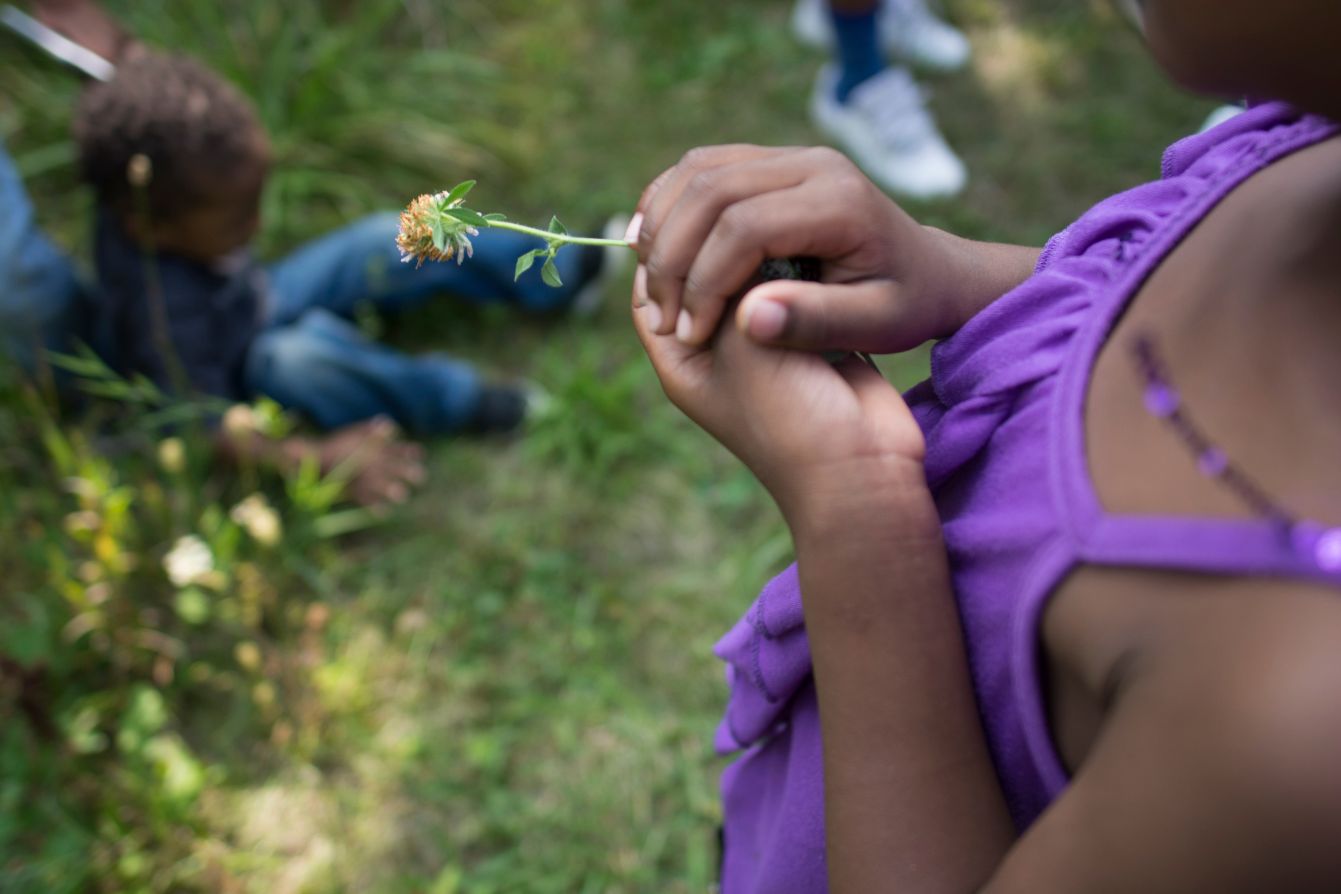Today’s youth face fearsome challenges in what our society calls “mental health,” some as a result of having suffered childhood traumas, but many others simply from the stress of trying to find their way in a society complicated by so many destabilizing factors. As individuals concerned with the education of our children, it is important to be mindful of and compassionate about the difficult issues young people may be coping with. Poets Lucinda and Miller Williams offer a poignant reminder of the need for understanding:
Compassion
Have compassion for everyone you meet
Even if they don’t want it
What seems conceit is always a sign
Always a sign, always a sign
For those you encounter, have compassion
Even if they don’t want it
What seems bad manners is always a sign
Always a sign, always a sign
Always a sign of things no ears have heard
Always a sign of things no eyes have seen
You do not know what wars are going on
Down there, where the spirit meets the bone
Down there, where the spirit meets the bone
Down where the spirit meets the bone
For everyone you listen to, have compassion
Even if they don’t want it

I want to explore a broader conversation concerning the ways we think about “mental health” and the role of education. For many in our society, both adults and youth, facing each new day is difficult, given the psychological and social burdens engendered by multiple interlocking crises: The looming climate catastrophe and other ecological debacles rooted in our violent alienation from nature; a renewed nuclear arms race; exploding global economic inequality and racial injustice; and a frightening movement toward authoritarianism— even neo-fascism— around the planet. We are warding off the prospect of a world in flames.
Education can play a key role in helping our youth navigate this unstable world. But it has to be a particular kind of “freedom school” education, engaging the humanity of both the teacher-learner and the student-leader, and simultaneously framing the apocalypse of 21st century life as the context for unprecedented change, revelation and human renewal. The necessary educational experiences would include forms of revolutionary struggle against the apocalypse (a word from the Greek meaning “unveiling”).
The literal poster child for this kind of education is, of course, 17-year-old Greta Thunberg, Sweden’s gifted citizen-of-the-world, whose autism reportedly manifested in childhood as selective mutism, a severe and potentially life-threatening depression. However, she started to learn about the looming catastrophe of climate change, and then determined to do something about it, even if she had to act alone. Her one-person school strikes inspired tens of millions of climate activists, which led to significant breakthroughs for worldwide consciousness concerning the crisis.
Greta herself became a globally recognized leader, teacher, and advocate, turning her “mental health” diagnosis into astonishingly articulate power. Profound lessons of her personal truth-is-stranger-than-fiction story are at the core of what I’m calling apocalyptic and revolutionary education. Simply writing those words, I can barely contain my enthusiasm about the mere prospect of trying it out with teenagers.
Forever Young
By Bob Dylan
May God keep and bless you always
May your wishes all come true
May you always do for others
And let others do for you
May you build a ladder to the stars
And climb on every rung
May you stay forever young
May you grow up to be righteous
May you grow up to be true
May you always know the truth
And see the light surrounding you
May you always be courageous
Stand upright and be strong
May you stay forever young
May your hands always be busy
May your feet always be swift
May you have a strong foundation
When the winds of changes shift
May your heart always be joyful
May your song always be sung
May you stay forever young
Forever young, forever young
May you stay forever young
The key difference between the kind of education I’m proposing and our current boring, meaningless schooling is a relentless focus on cultivating students’ agency and power to shape their own lives and communities. Such learning would be project-based, hands-on and place-specific. A successful movement for apocalyptic and revolutionary education would also explore with young people the socio-political dynamics of class struggle, race, gender, and ability. Such a movement would teach youth that they’re not the problem. They’re the solution to the problems. What a breath of fresh air! Studying exemplary models like the Movement for Black Lives, the Sunrise Movement, Extinction Rebellion, Me Too, Time’s Up, the March for Our Lives, Youth Climate Strikes, and the Dreamers would affirm students’ abilities and strengthen their confidence to become leaders themselves.
We would also include the wisdom of elders, tapping into groups like the James and Grace Lee Boggs Center to Nurture Community Leadership, and the Detroit Independent Freedom Schools Movement, as well international groups like the Zapatista National Liberation Front, Via Campesina, the Transnational Institute, and the Tricontinental Institute for Social Research. Students would learn that there is power in seeking the truth, learning democracy, participating in community, fighting for justice.
We can choose revolutionary struggle against the apocalypse, or we can choose death after meaningless lives. Those are our choices, and that’s the basis of a curriculum for apocalyptic and revolutionary education. We can choose between liberal reforms to relieve suffering and radical revolution to pull it out at the roots. Hard stuff. The educational processes we need would help students discover their power to heal, grow, and transform the world.
We refuse to be
What you wanted us to be
We are what we are
That’s the way it’s going to be, if you don’t know
You can’t educate us
For no equal opportunity
Talking about my freedom
People freedom and liberty
Yeah, we’ve been trodding on the winepress much too long
Rebel, rebel
Yes, we’ve been trodding on the winepress much too long
Rebel, rebel
Babylon system is the vampire, yeah
Sucking the children day by day, yeah
I say, the Babylon system is the vampire, falling empire
Sucking the blood of the sufferers, yeah
Building church and university
Deceiving the people continually
I say they are graduating thieves and murderers
Look out now, they are sucking the blood of the sufferers
Tell the children the truth
Tell the children the truth
Tell the children the truth right now
Come on and tell the children the truth
Tell the children the truth
Tell the children the truth
Tell the children the truth
Come on and tell the children the truth
A decade ago the city squares all over the world echoed with the spontaneous cries of “Occupy! Connect! Create!” More recently our Indigenous brothers and sisters have risen up against genocidal fossil energy schemes, crying “Mini Wiconi!” (Water is Life). As the new decade dawns, people are once again in the streets all around the world battling neoliberal austerity and domination in all its toxic forms. The ancient wisdom of our humanity and the young activists on the cutting edge of today’s movements offer examples of fabulous apocalyptic and revolutionary education. We can discover the ideas, formations, networks, fractals, and movement dynamics that will get us through today’s nightmares. Key is the right kind of education and acting on it with others. Let it grow.
The first curricular principle of the Detroit Independent Freedom Schools Movement (DIFSM) is: “Education is not a commodity provided to students by teachers who fill them up with information. It is a dynamic transformative process based on human relationships and collaborative learning. Learning is universal and inevitable. People learn something no matter what we do, where, with whom or how we do it. It’s part of our humanity. Freedom Schools build the learning experience around this inherent aspect of our souls and spirits.”
Longtime Detroiter Thomas Stephens currently does organizing and legal work for Detroiters Resisting Emergency Management. He has served as policy analyst for the Detroit City Council Research and Analysis Division. He previously worked as a trial lawyer, litigating cases related to environmental justice and civil rights.


